Tourism
Covid-19 lockdown impact: A tale of two streets – Long Street and Vilakazi Street
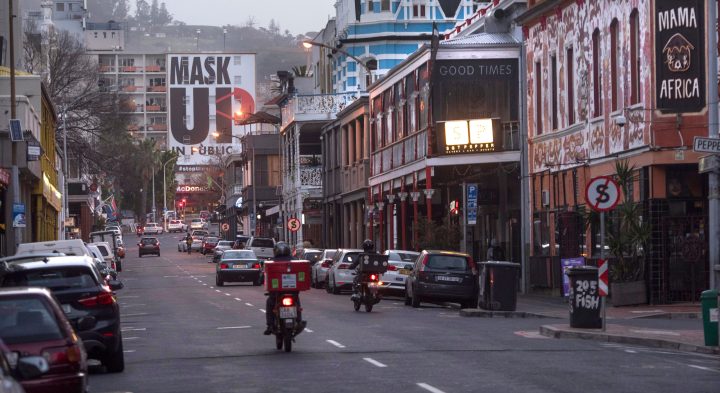
Five months into the national lockdown, the impact on the hospitality and tourism industry has been brutal. Here we document how the Covid-19 pandemic has wrought havoc on two iconic tourist streets of South Africa - and how restaurateurs and traders have pivoted for survival.
First published in Daily Maverick 168
Long Street, Cape Town
Cape Town’s famed ‘party’ street, Long Street, usually bustles with vibrant nightlife, and is home to bars, clubs and restaurants. But when the lockdown was implemented on 26 March, Long Street became eerily quiet overnight.
The street has roughly 160 businesses – mostly restaurants, followed by bars and nightclubs, clothing and shoe stores, curio shops, and markets. Informal traders and car guards also eke out a living.
According to Central City Improvement District CEO, Tasso Evangelinos, about 30 000 people on average visited the city centre at night pre-pandemic. Most were on Long Street. “This figure can shoot up to about 100 000 for special events such as the Free Jazz Concert.”

The century-old Long Street Turkish Baths have been closed since the beginning of lockdown. (Photo: Brenton Geach)
Evangelinos confirmed that since lockdown, four businesses had closed permanently, including the iconic Jo’Burg Bar (which had been around for 22 years), special needs-run coffee shop Brownies & downiest, and the Brand Collective clothing store.
When we visited the area just before Level 2 eased-up regulations kicked in, many shops were either empty or boarded up. “Closed due to Covid-19” read signs displayed on windows. After 6pm, Long street was abandoned, except for a few sex workers, homeless persons and visible drug users. “It’s dead outside in terms of foot traffic,” said Andre Sales, co-director of Clarke’s Bookshop which has been on Long Street for 65 years.
Without tourists, Long Street lost its primary revenue source. Everlyn Akala, who co-owns the African Women’s Craft Market, estimates 95% of her sales came from international tourists. Akala had to retrench some staff. Those remaining worked alternating shifts every two days.
Akala has struggled to pay rent and utilities which came to about R25 000. The shop sources its crafts from local women, and the economic crunch forced some to sell their wares at drastically reduced prices. “Some are even saying I can give them R10, it’s very sad,” said Akala.
Clarke’s bookshop reduced its working hours and cut salaries by 20%. Rent was also reduced, “but business does need to pick up again,” said Sales who couldn’t fathom the idea of the bookshop closing down.
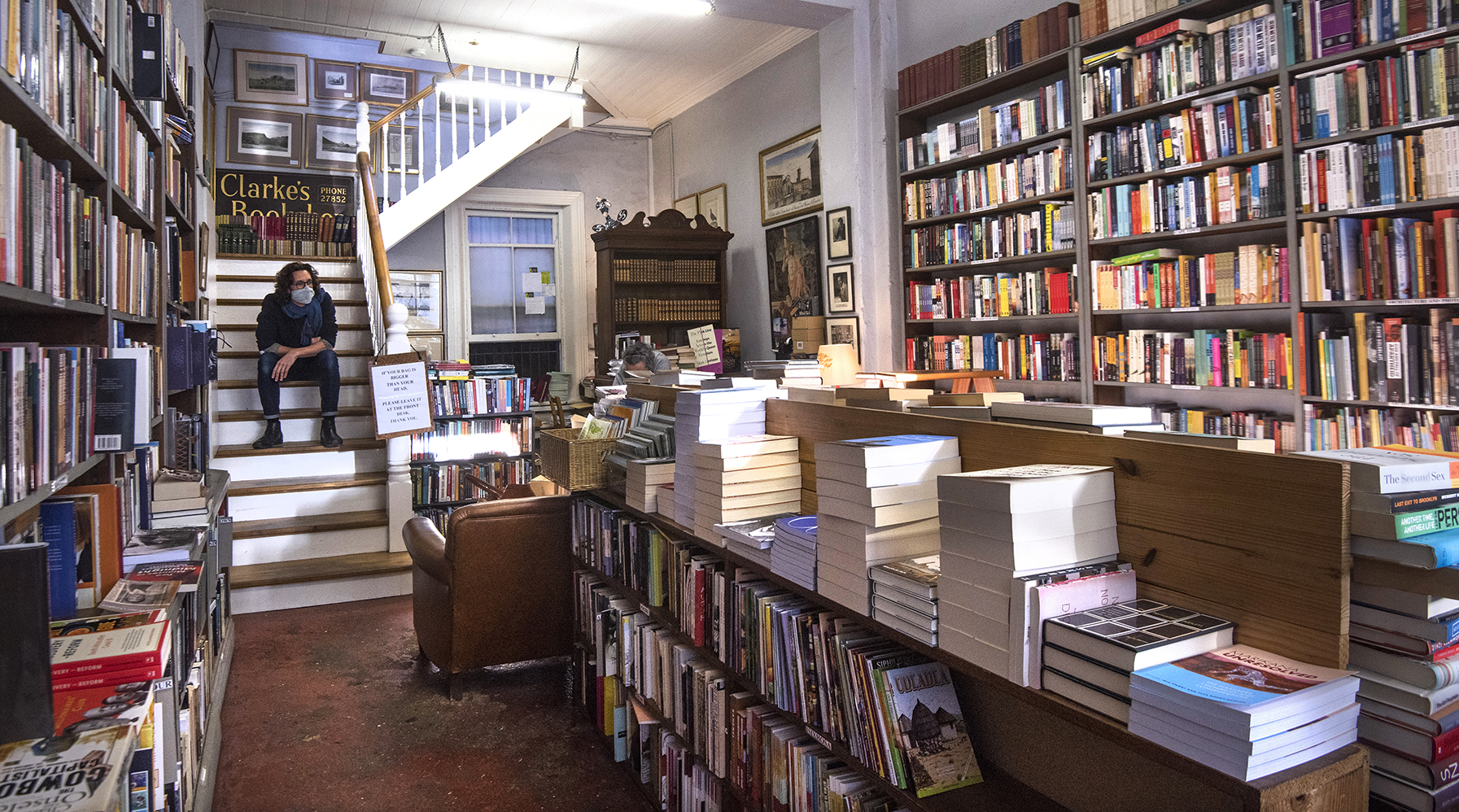
Established in 1956, Clarke’s Bookshop in Long Street , is one of the oldest surviving independent bookshops in the country.Andre Sales who has been working there for 15 yrs. (Photo: Brenton Geach)

Mama Africa restaurant and bar was established in 1995 as a celebration of South Africa’s new democracy. (Photo: Brenton Geach)
They went online in an attempt to boost sales, shipped internationally under level 3, and offered free delivery in Cape Town. “We’ve got a mailing list…and we’ve updated our website so you can easily order,” said Sales.
Jacques Vosloo, co-owner of famous record-shop Mabu Vinyl, also made fewer sales during lockdown, but survived through local clients and reduced rent.
Mabu Vinyl also branched out to deliveries. “We weren’t selling via post, anywhere. But then from the lockdown we started selling to other parts of South Africa,” said Vosloo.
The curfew and alcohol ban hit clubs and restaurants hardest. Outside Blue Bar was a sign advertising coffee and other hot drinks. “We maybe get three to four customers for coffee a day,” said Victor Moyo, an employee. They filled the profit gap by beefing up their gambling section.
Beerhouse manager, Prince Gapare, said bar turnover fell from roughly 90% to 15% after the alcohol ban was introduced. They had survived by selling food on apps such as Mr Delivery and Uber Eats.
Gapare said while they had tried to sell non-alcoholic beer, “the South African market is not really ready for that”. However, during a visit when level 3 was still in place, a few seated bar patrons were enjoying what may or may not have been non-alcoholic beverages.
Michael Joshua, manager of Africana Cafe, also said that non-alcoholic beer wasn’t marketable. The cafe was empty except for Uber Eats drivers fetching food orders. “We’ve been marketing ourselves on social media.”
With restrictions easing to level two since August 18, the sale of liquor is permitted, but the 10pm curfew means late-night clubs remain closed. Local tourism is allowed, but shop owners lamented the loss of international travellers. While some suffer the pain of permanent closure, others are trying to pick up the pieces and in an attempt to recover their losses.
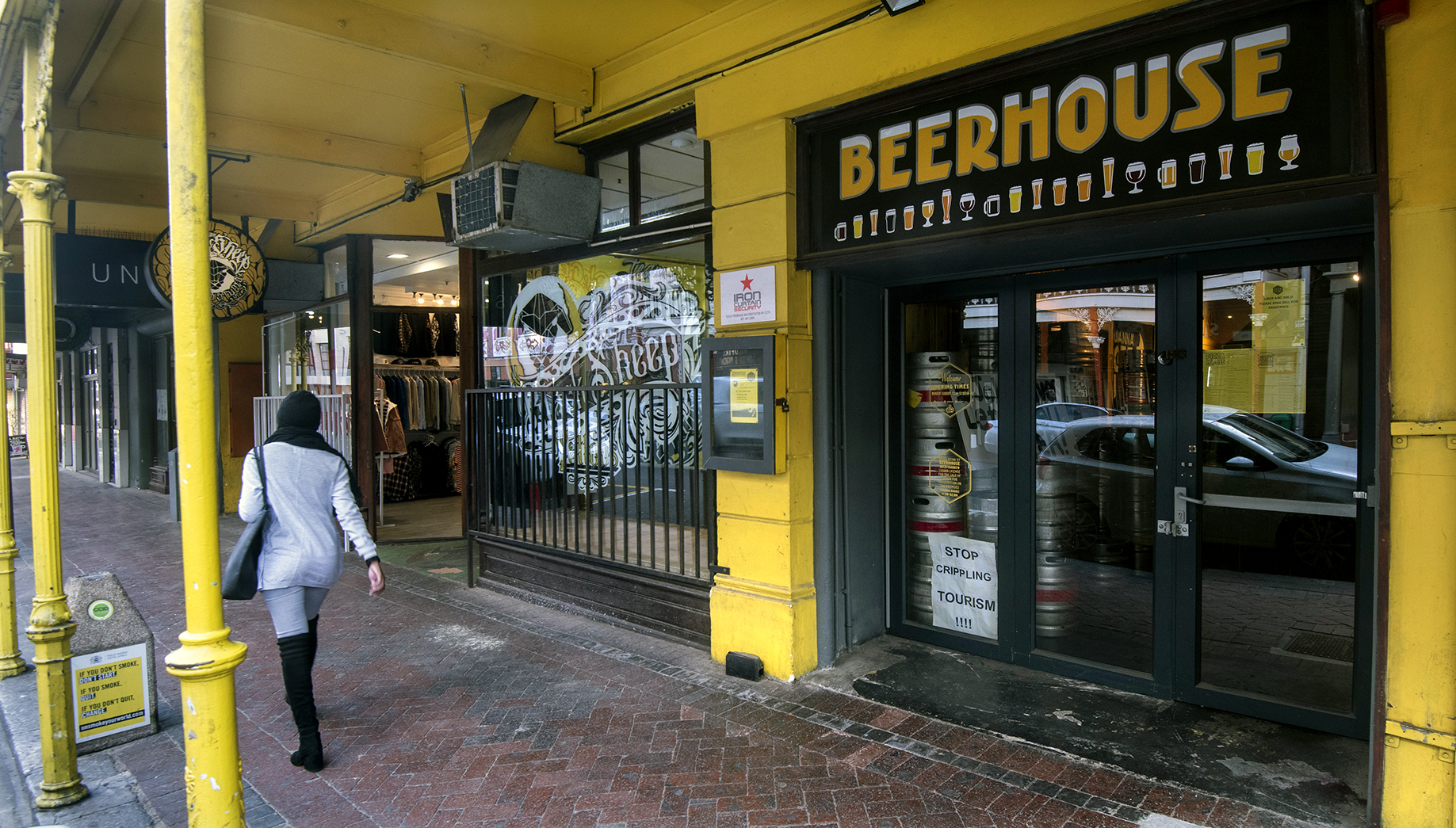
Long Street’s Beerhouse. (Photo: Brenton Geach)
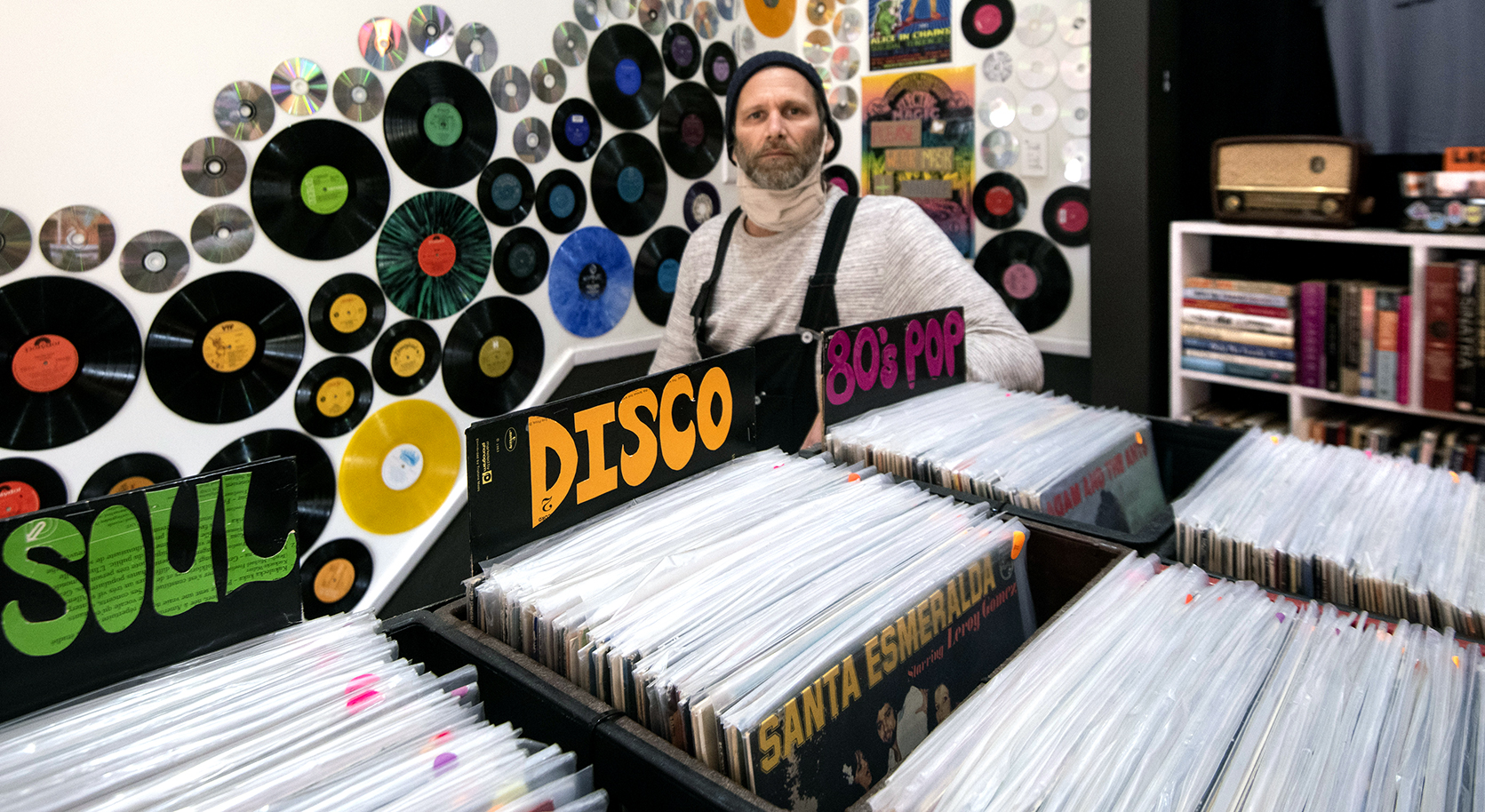
Jacques Vosloo runs MABU VINYL, an iconic South African record store in Long Street (Photo: Brenton Geach)
Interviewed after level two had been implemented, Gapare said that businesses had shown a lift “as we can finally sell booze”. Traffic had also picked up, especially at the weekends. But Long Street is known for its late-time nightlife, and “hopefully, people will just have to adjust to the new norm,” said Gapare.
Said Sales: “I suppose the main hope is that there are now a lot of empty shop fronts, and that these will be let to exciting small businesses that could give the street new life.”
Vilakazi Street, Orlando West, Soweto
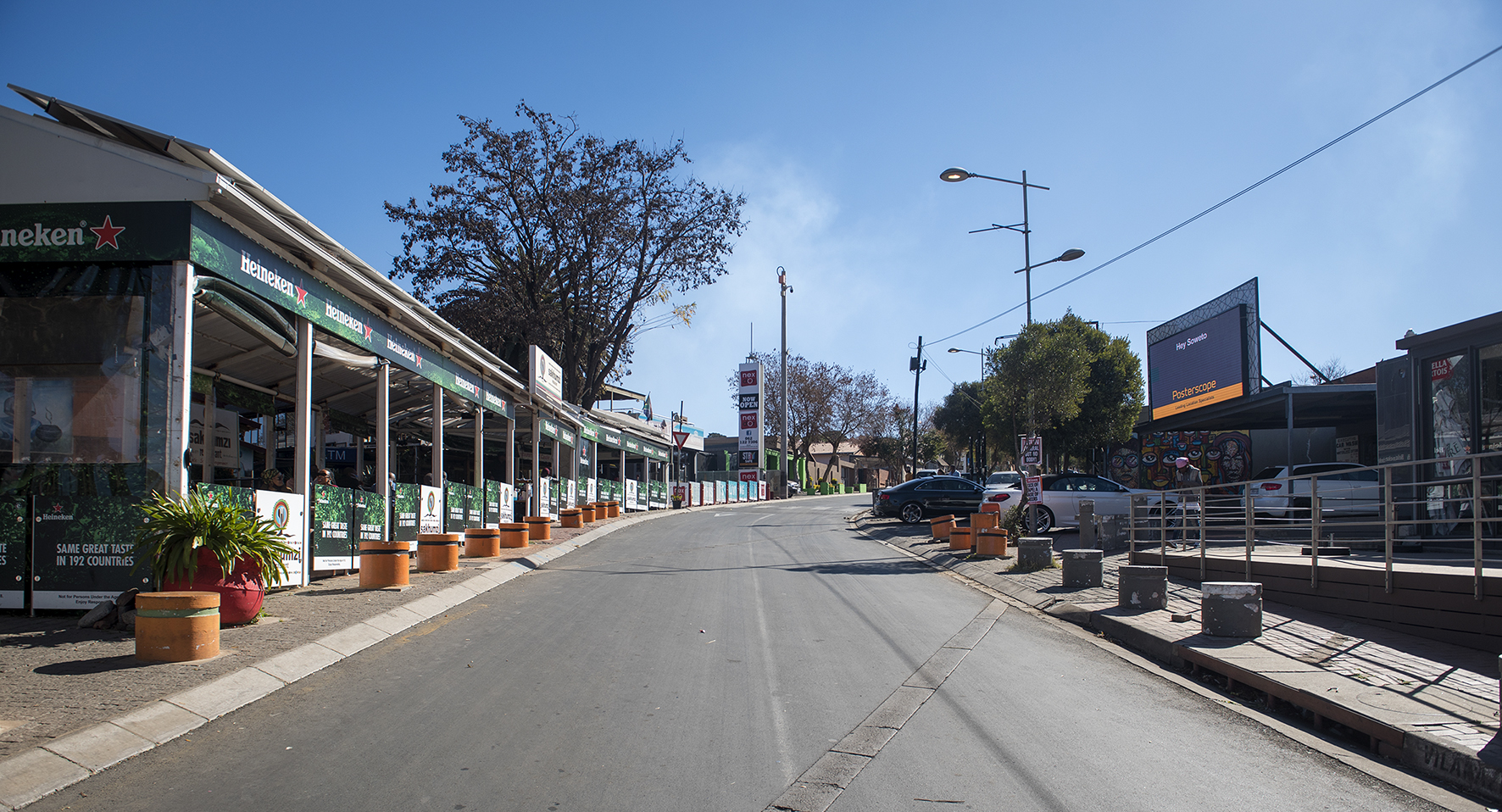
An image of a quiet Vilakazi Street during level 3 of lockdown. (Photo: Shiraaz Mohamed)
No Soweto tour bus bypasses Vilakazi Street. It was the street address to two Nobel Laureates – the late Nelson Mandela and Archbishop Emeritus Desmond Tutu. It was also the home of Mandela’s legendary activist wife Winnie Madikizela-Mandela, and the site of the Hector Pieterson Memorial.
The main tourist attraction – the Mandela House on 8115 Vilakazi Street, was declared a museum in the nineties. But it’s now taken a heavy financial knock in the five months since the lockdown was implemented, when tourism ground to a halt.
South Africa’s shift to level 2 of lockdown two weeks ago might have come a little too late for many people and businesses who largely rely on tourism to make a living along the prominent tourist strip.
Vilakazi Street has had an aura of desolation about it throughout the lockdown period. Storefronts have been gathering dust as they stand devoid of displays, a sharp contrast from the buzz prior to lockdown.
The museum, for instance, attracted 25 009 international visits, 9 254 domestic and regional adult visits, and 3 449 students and scholars, between December 2019 and March 2020. But visitor numbers plummeted to zero after the museum closed just days before the lockdown came into effect on 26 March.

A mural of the late Winnie Mandela in Vilakazi Street. (Photo: Shiraaz Mohamed)
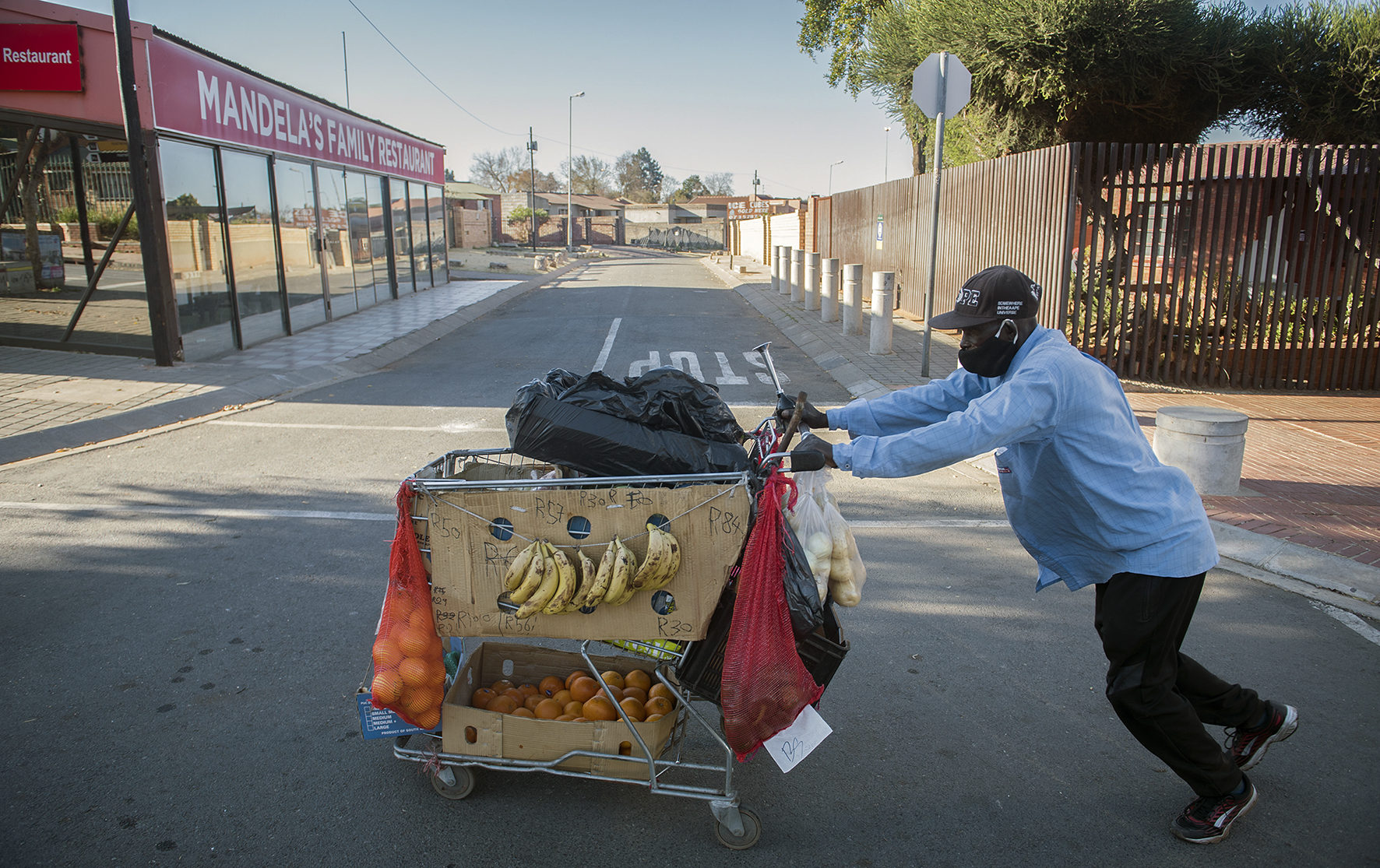
A fruit and veg mobile street vendor pushes his trolley up Vilakazi Street in search of customers during lockdown level 3. (Photo: Shiraaz Mohamed)
“The impact on business has been very brutal, and many have been forced to be innovative,” said museum supervisor Busisiwe Mahlabe.
For others, the curtain simply came down on their business operations.
The Palace restaurant, which was barely open for a month in February before level 5 lockdown regulations came into effect, had to close down.
The impact of the lockdown restrictions rippled down from the museum and restaurants, to the informal sector.
Food trader Gladys Raulinga, 38, has lost 50% of her business. Where she used to sell at least 10 single roast chicken and pap meals a day, she is now selling five.
The one lifeline has been the partial reopening of the Home Affairs office, at the foot of Vilakazi Street, since the start of level 3.
“Since there are no tourists, my target now is visitors to the Orlando Home Affairs, but it’s not the same,” said Raulinga.
Car guard Kabelo Tafane, 21, also shifted gear – to queueing in lines at Home Affairs. “We wake up at 3 or 4 am and go to queues at Home Affairs. We then sell our places in the queue for a meal or cash. We do the same at banks in Maponya Mall.”
Celine Mkhabela, owner of Makhelwane Restaurant, had to lay off all 12 staff members but retained four cooks – whom she pays from her own funds. When interviewed during level 3 restrictions, Mkhabela said: “There is nobody coming in, but I cannot close down, the R4 500 per annum liquor licence must be paid.”
Sakhumzi Maqubela, owner of popular restaurant Sakhumzi, said he had to let go of about 90 staff members, retaining only 20. Maqubela also provided support to start-ups by making his resources and staff available to competitors and had thus created about 900 indirect jobs on Vilakazi Street before Covid-19.
The restaurant survived by changing their buffet set-up to table servings, and encouraged those craving alcohol to order the sought-after Sakhumzi soul food instead – traditional meals of samp, pap, and steamed bread with tripe or hardbody chicken. “As long as we remain open, we are optimistic about growth again. It won’t be easy, but we hope we’ll pick up day by day,” said Maqubela.
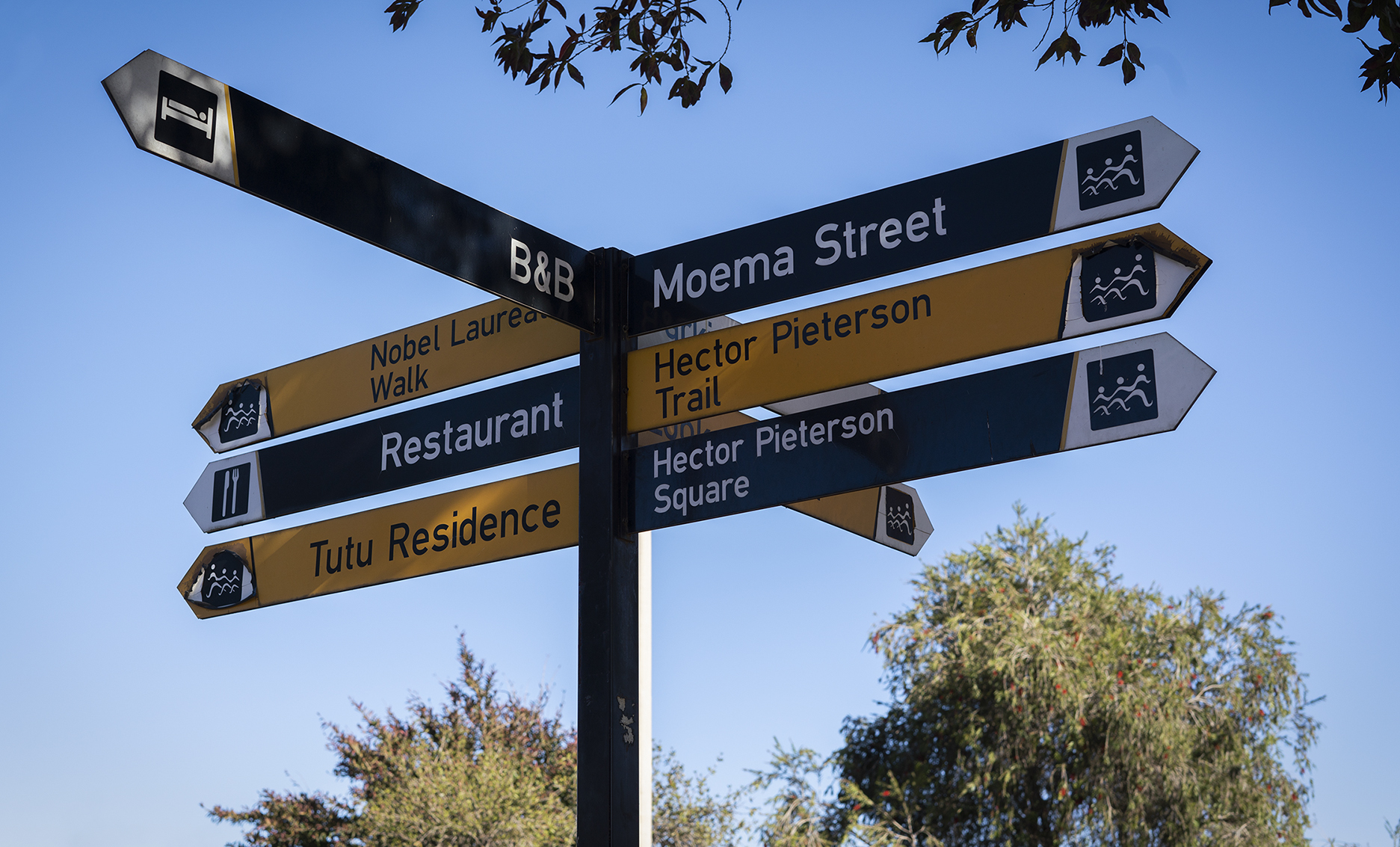
Sreet corner signboards on Vilakazi Street. (Photo: Shiraaz Mohamed)
DM

















 Become an Insider
Become an Insider